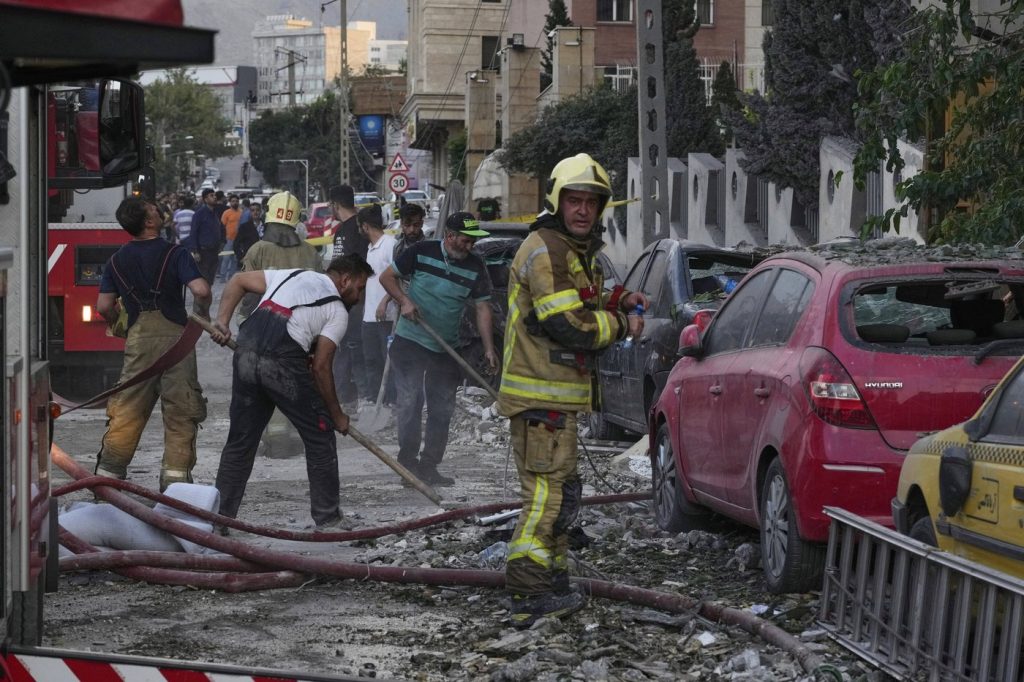On Friday, June 13, 2025, Israel launched a significant military attack on Iran, escalating a long-standing shadow war between the two nations into open conflict. This assault, which targeted crucial Iranian nuclear and military facilities, has raised concerns about the potential for a wider regional war. Explosions rocked the capital of Tehran as the Israeli strikes were reported to have resulted in the deaths of key Iranian figures, including the leader of the Revolutionary Guard and two prominent nuclear scientists.
The Israeli government asserted that the airstrikes were aimed at curtailing Iran's progress toward acquiring a nuclear weapon amidst fears that its rapidly advancing uranium enrichment program poses an existential threat to Israel. Although Iran has consistently maintained that its nuclear program is intended for peaceful purposes, the latest actions come in a context of escalating tensions following the Trump administration's failed attempts to reestablish negotiations over Iran's uranium enrichment in exchange for lifting economic sanctions. Recent indirect talks between U.S. and Iranian diplomats have reached a standstill, leading to further instability in the region.
Israeli Prime Minister Benjamin Netanyahu, in a video declaration regarding the military operation, confirmed that his country had specifically targeted the Natanz nuclear facility, which is Iran's primary enrichment site. He also indicated that both Iran’s leading nuclear scientists and its ballistic missile arsenal were on the list of targets. Reports from Iranian state television described the extensive damage inflicted on Tehran, including footage of destroyed buildings and significant destruction at the Revolutionary Guard's headquarters.
Following the strikes, Israel took precautionary measures by closing its airspace and mobilizing tens of thousands of soldiers to fortify its borders, anticipating a possible Iranian retaliation. Netanyahu claimed that if Iran were not stopped, it could develop a nuclear weapon in a matter of months. However, experts suggest that while Iran possesses high enriched uranium, it would take significant time and development to create a functional nuclear weapon, particularly in miniaturizing it for missile delivery.
Iranian officials have competitively responded to the attack, openly threatening to pursue nuclear weapons. Tensions have escalated significantly since the U.S. withdrew from the 2015 nuclear deal, which aimed to curtail Iran's nuclear ambitions. In a recent move supported by the International Atomic Energy Agency, Iran has come under scrutiny for failing to comply with nuclear nonproliferation obligations. In retaliation to the Israeli attack, Iran announced plans to disclose a previously undisclosed enrichment site and increase its production of 60% enriched uranium, a step that can be easily processed to reach weapon-grade levels.
Iran’s nuclear program has long presented a point of contention, largely centered around its two main enrichment facilities: Natanz and Fordo, located close to Tehran. Both sites are designed to withstand potential airstrikes, and have previously been the targets of sabotage, including the infamous Stuxnet virus believed to have been orchestrated by Israel and the U.S. Negotiations for a new nuclear deal, which were expected to resume in Oman with U.S. special envoy Steve Witkoff and Iranian diplomats, are now uncertain in light of the recent Israeli strikes.
In the aftermath of the military operations, Iranian Supreme Leader Ayatollah Ali Khamenei issued a strong warning of "severe punishment" for Israel, declaring that the military forces of the Islamic Republic would ensure that the attacks would not go unpunished. Other Iranian officials echoed the pledge for vengeance, with state television airing footage of public demonstrations chanting slogans against both Israel and the United States. Meanwhile, former President Trump distanced the U.S. from the attacks, cautioning Iran against retaliatory actions targeting American interests in the region.











